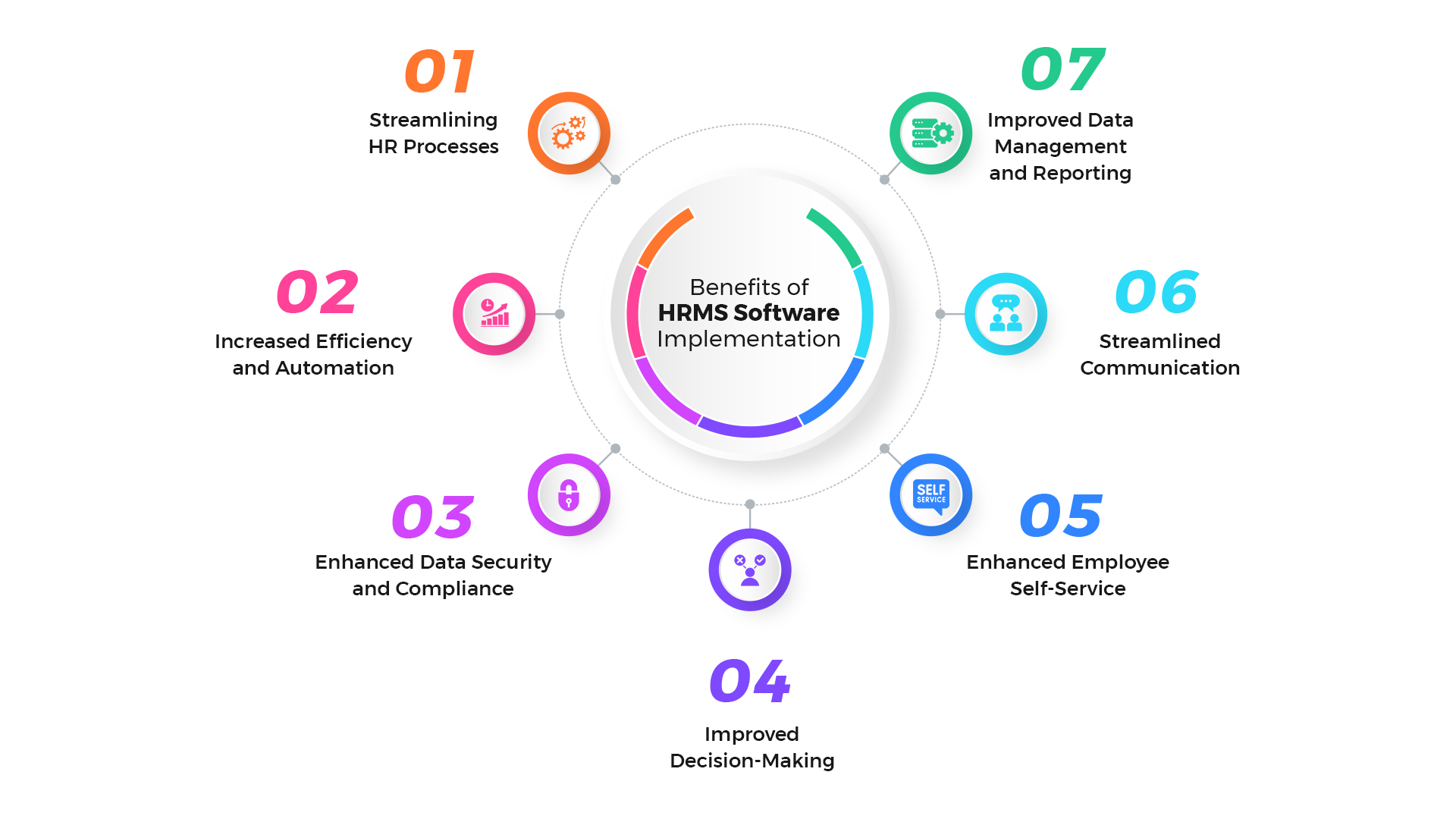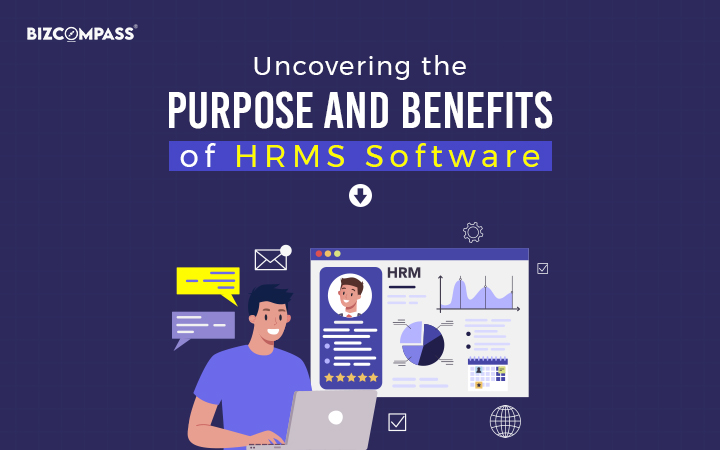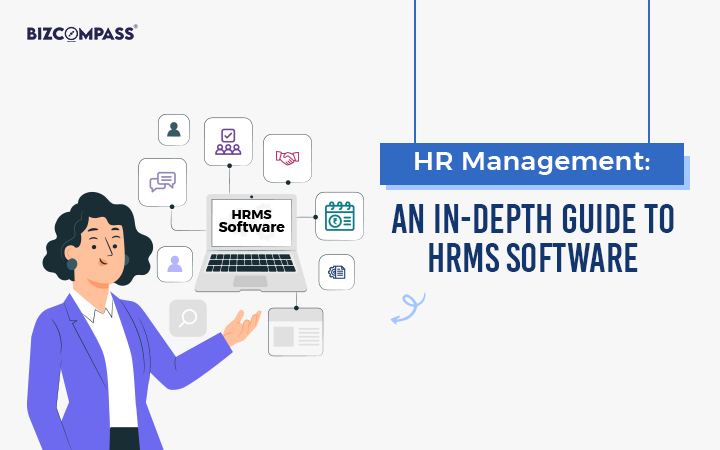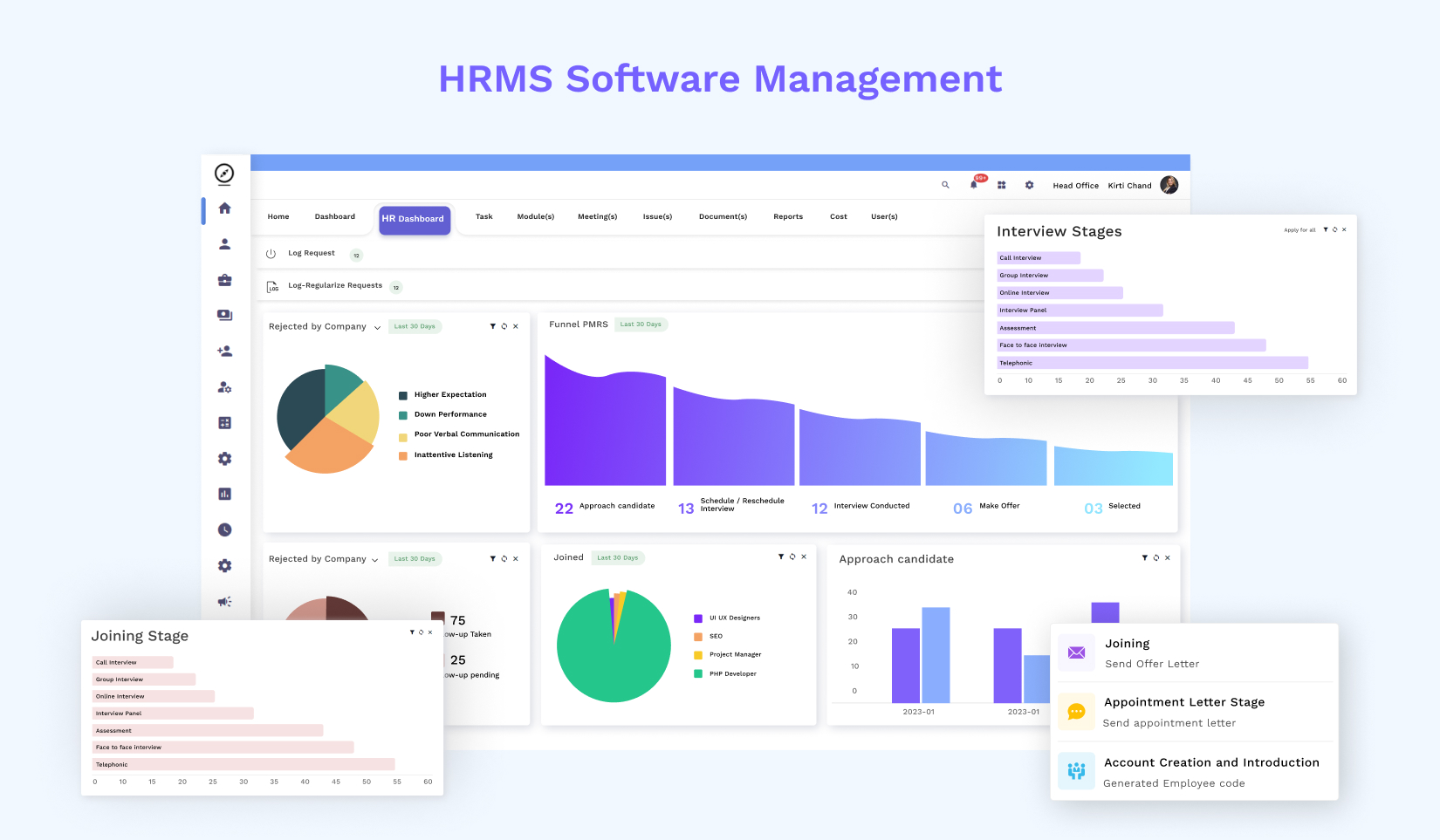Introduction
In the dynamic landscape of today's workplaces, the efficient management of human resources is the cornerstone of organizational success. From recruiting top talent to ensuring employee well-being, HR professionals face a myriad of challenges daily. This is where HRMS software steps in as a powerful ally, streamlining processes, and unlocking a treasure trove of benefits.
The Evolution Of HRMS Software
HRMS, or Human Resource Management System, is a multifaceted software solution designed to revolutionize HR operations. As we navigate through the digital age, the benefits of HRMS software are constantly on the rise, transforming the way businesses manage their workforce.
In this comprehensive guide, we will delve into the essence of HRMS software, exploring its purpose, and uncovering the myriad benefits it brings to modern workplaces.
But first, let's get on a journey to understand the concept of HRMS software and why it has become an indispensable tool for HR professionals worldwide.
Understanding HRMS Software
At its core, HRMS software, or Human Resource Management System software, is a comprehensive digital solution tailored to meet the multifaceted needs of human resources management within organizations. Â It's the digital brain behind HR operations, housing a wealth of employee data, facilitating various HR functions, and optimizing administrative tasks.
HRMS software acts as a centralized hub where all employee-related information and processes converge. From the moment an employee joins the organization until their departure, HRMS software plays a pivotal role in every step of their journey.
This encompassing software covers recruitment, employee records, payroll, benefits administration, performance management, and more—all within a user-friendly digital interface. Imagine a typical day in the HR department—manually updating employee records, managing attendance and leaves, juggling payroll calculations, conducting performance reviews, and overseeing recruitment.
These tasks, if handled manually, can be labor-intensive and prone to errors. The main benefits of HRMS software show up at this point. It steps in to streamline these processes efficiently.
By automating routine tasks, HRMS software liberates HR professionals from administrative burdens, allowing them to focus on strategic HR initiatives. It acts as a digital assistant, providing tools for faster recruitment, accurate payroll processing, performance evaluation, and much more. Moreover, it offers real-time insights into HR metrics, empowering data-driven decision-making.
In essence, HRMS software has become the backbone of modern HR departments, enhancing efficiency and enabling HR professionals to serve as strategic partners in the organization's success.
Benefits Of HRMS Software Implementation
HRMS software is more than just a digital tool; it's a game-changer for HR departments. The benefits of HRMS Software are endless. Here are the key advantages that organizations gain.
Streamlining HR Processes
One of the foremost advantages of HRMS software is its ability to streamline HR processes. Whether it's managing employee records, handling leave requests, or conducting performance evaluations, HRMS simplifies and accelerates these tasks. Automating routine processes reduces administrative workloads, minimizes errors, and ensures that HR operations run like a well-oiled machine.
Increased Efficiency And Automation
HRMS software is a beacon of efficiency. One of the key benefits of HRMS Software is that it automates time-consuming tasks like payroll processing, and attendance tracking, and improves administration. This automation not only saves time but also reduces the likelihood of errors, ensuring that employees are paid accurately and HR teams can focus on strategic initiatives.
Enhanced Data Security And Compliance
Data security and compliance are paramount in HR. HRMS software takes data protection seriously by offering features like data encryption, access controls, and compliance tracking. It helps firms adhere to data protection regulations such as GDPR or HIPAA, safeguarding information.
Improved Decision-Making
Data-driven decision-making is the hallmark of successful organizations. HRMS software provides HR professionals with real-time insights and analytics. It enables them to track key HR metrics, such as turnover rates and recruitment efficiency, facilitating informed decisions to enhance HR strategies.
Enhanced Employee Self-Service
Empowering employees to manage their HR-related tasks is a win-win situation. HRMS software offers self-service portals where employees can access their personal information, request time off, and view pay slips. This not only reduces the administrative burden on HR teams but also fosters a sense of ownership among employees.
Streamlined Communication
Clear and efficient communication is crucial in any organization. HRMS software often includes communication tools, making it easier for HR teams to reach out to employees and vice versa. Communication enhances employee engagement and ensures that everyone is on the same page.
Improved Data Management And Reporting
Managing HR-related data can be a daunting task. A major benefit of HRMS software lies in the fact that it simplifies data management by providing centralized storage and easy retrieval of information. It also offers customizable reporting and analytics tools, enabling HR professionals to create reports tailored to their organization's needs.
These benefits of HRMS software implementation collectively make it an indispensable asset for HR departments, enabling them to operate with greater efficiency, compliance, and strategic insight.
Conclusion
In today's fierce business landscape, organizations need every advantage they can get. HRMS software isn't just an advantage; it's a strategic imperative. It empowers HR departments to operate efficiently, make data-driven decisions, and support the organization's growth. The benefits of HRMS software extend far beyond the HR department—it impacts the entire organization.
It helps create a workplace where employees are empowered, processes are efficient, and the path to success is well-lit. Â If you're considering the implementation of HRMS software or looking to optimize your existing system, seize the opportunity to unlock its full potential with Bizcompass.Â
FAQ
What are the primary benefits of HRMS software implementation in an organization?
The primary benefits of HRMS software include streamlining HR processes, increasing efficiency through automation, enhancing data security and compliance, improving decision-making with real-time insights, empowering employee self-service, facilitating streamlined communication, and enabling better data management and reporting.
How does HRMS software streamline HR processes?
HRMS software automates routine HR tasks such as payroll processing, leave management, and performance evaluations. This streamlines processes, reduces administrative workloads, minimizes errors, and ensures HR operations run efficiently.
Can you elaborate on enhanced data security and compliance offered by HRMS software?
HRMS software provides features like data encryption, access controls, and compliance tracking to safeguard sensitive employee information and ensure adherence to data protection regulations. This protects against data breaches and unauthorized access.
What are the benefits of HRMS Software wrt decision-making within organizations?
HRMS software offers real-time insights and analytics on key HR metrics, such as turnover rates and recruitment efficiency. HR professionals can use this data to make informed decisions and optimize HR strategies.
What role does streamlined communication play in the benefits of HRMS software?
HRMS software often includes communication tools that make it easier for HR teams to engage with employees and vice versa. Clear and efficient communication enhances employee engagement and ensures everyone is well-informed.
What are the benefits of HRMS software for data management and reporting?
HRMS software provides centralized storage and easy retrieval of HR-related data. It also offers customizable reporting and analytics tools, enabling HR professionals to create tailored reports that aid in decision-making.


 >
>





